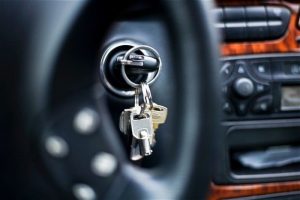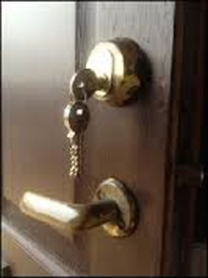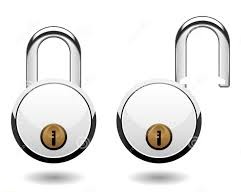Keys
Besides your mobile phone, what is the most important thing you carry around with you every day? Very few people even think about their keys, but without them you cannot function. Be it getting into your home or office, or starting your keys are always needed. So when was the last time you bothered to look at your keys, clean them even, or check that they were not bent or damaged in any other way?
A lot of locks fail because the keys being used to operate them are worn, damaged or badly cut copies. I’ve seen people try their best to service their own locks, but then fail to keep the actual keys clean. We know toddlers love to put keys in their mouths and we snatch those keys away because we know they are dirty, but we never even give those grubby, bacteria ridden lumps of metal so much as a quick scrub to remove surface dirt.
The bodies at the top of the locksmithing industry in the UK suggest that we locksmiths should tell you to change your locks every 5 years, one of the main reasons for this is that people just do not maintain their locks, or they use too many copies that are cut poorly. So here are my top tips for keys:
1. Keep your keys clean. I know it is obvious, but I see loads of grubby keys, especially in the work place or where anyone needs a big bunch of keys. Dirt and grime collects in the grooves, which is then transferred into the lock where it builds up, wearing away the internal moving parts. Hot, soapy water and a stiff nail brush should get rid of the worst of it and be sure to dry the key straight away so as to avoid rust.
2. Only take the keys you need. Big bunches of keys just rub against each other and generally wear away. If you have mortice (Chubb) keys with thin prongs, those prongs are likely to get bent far easier when the keys are on a big bunch. Separate your keys into smaller bunches for use when you need them. This will also keep the keys cleaner.
3. Don’t get too many copies made. Any more than four keys is going to be more expensive than a basic keysafe. If you run a business, giving staff members the code to the keysafe that can be changed is a lot better than chasing them to return their key when they leave, and if they leave under nefarious circumstances, you might have to change your locks when they don’t return their key. A keysafe just requires changing the code to the keysafe. It also saves a load of bad copies wearing out the lock quicker.
4. Having said that, do not let your stash of keys run down to just the one, especially if that one is a copy. You should always be in possession of a branded original key for the lock. All locks come with at least two keys. If you only have one, not only are you going to be in trouble when you eventually lose it, but that means there is at least one other key in someone’s possession who can gain access to a door you want to secure, be it your home or workplace.
5. If you need to get copies made, always keep the originals as primary use. Just the other day, I attended a job in Blakeney where the lock wasn’t opening or locking on one side. I asked the customer to fetch me the original keys which worked just fine. Your original branded keys are the most important. Treat them with the utmost care. If you need to change your locks, think about how many keys you might need and get you locksmith to order them with your new lock.
6. If you must keys cut at a later date, shy away from chain outlets. They have a higher turnover of staff who are not always trained to high standards. Your local engraver/cobbler will be running their own business and will more likely have years of experience. But, they will not often have genuine branded blanks. Be prepared to demand genuine branded keys, even if that means coming back a few days later and paying more for the keys. The key cutter will take even more care to cut the key perfectly as they will not want you coming back with a bad cut key. It will cost them more to honour a guarantee of a good cut if the blank is branded.
7. As said above, any more than four keys should be negated by a basic keysafe, but it is worth investing in a high quality keysafe. Dial keysafes are easier to change the codes on, so perfect for holiday lets, etc, but push button keysafes are more secure and so better for the home where you might not need to change the code too often. Keysafes should be positioned near the door the key inside is going to open, but not on general view if avoidable. If you can position in a corner, or make the angles difficult for levers or hammers, then even better, but most burglars ignore keysafes as they can usually find easier ways in.
8. Many new high security locks are coming with special keys. At least one brand uses a magnet in the key. From personal experience, I can tell you not to have these keys anywhere near vehicle keys as the small magnetic field can scramble the signal between car and car key transceiver.
9. If you have a digital safe, hand the override keys to a trusted friend or family member. There is no point keeping the keys in the house where the burglar might find them. But do not keep the keys inside the safe – they will be useless to you if the batteries fail. If you only have a manual key safe, again give one of the keys to a friend or family member and ensure the second key is not left in the home while you are out.
10. The glove compartment is not the place for your spare car key. The only person who can possible benefit from the key being there is the car thief.
11. If you drive to your holiday destination and it is more than a hundred miles from home, take the spare key to the car. Leave it in the holiday accommodation, because there is nothing worse than having to call a locksmith knowing you could get in yourself if you had the spare nearby.
12. If you have a special knack for unlocking your door, or you have to hold the key at a certain angle, either the key or your lock is not right. Check the key before any further damage is done. If it’s not the key, then change the lock before it fails completely just before you need to be in and out for an important event.
If you have any questions regarding any of the points raised above or in any of my other blogs, please contact me through any of the channels mentioned on my contacts page. (Text gets fasted response).
Thanks for reading!
admin February 21, 2020



